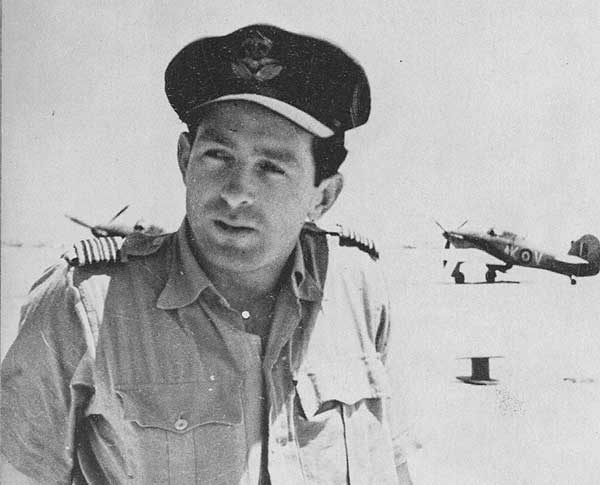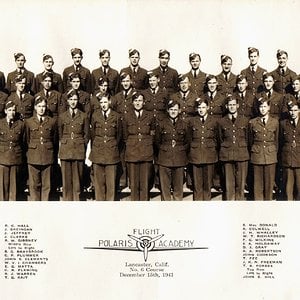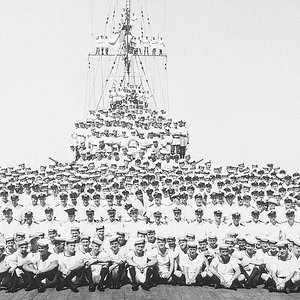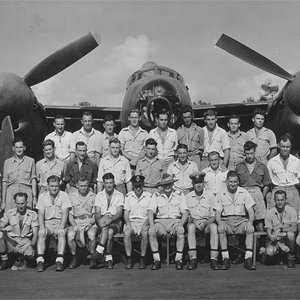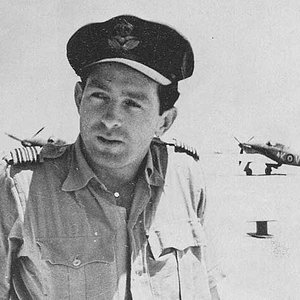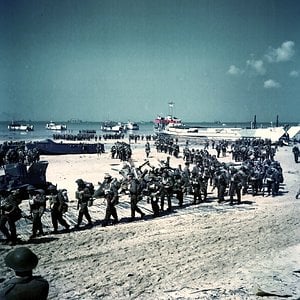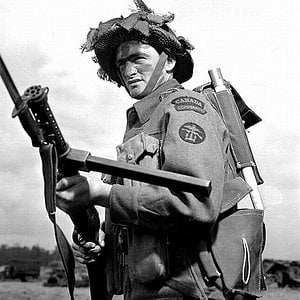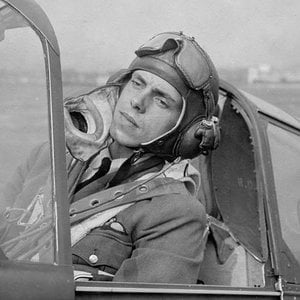Navigation
Install the app
How to install the app on iOS
Follow along with the video below to see how to install our site as a web app on your home screen.
Note: This feature may not be available in some browsers.
More options
You are using an out of date browser. It may not display this or other websites correctly.
You should upgrade or use an alternative browser.
You should upgrade or use an alternative browser.
Woody, as he was known to everyone, was born in Victoria, British Columbia, Canada in 1916. He joined the Royal Air Force prior to World War II. He had always wanted to fly but couldn't be accepted for pilot training in the Royal Canadian Air Force at the time because he didn't have a University degree. So, like many other Canadians, in 1938 he made his way to England and joined the R.A.F.
In May 1939, Woody was posted to 33 Squadron in Egypt flying Gladiators. Although Gazetted in May 1941, his many early successes in North Africa between June and December of 1940 resulted in the award of the Distinguished Flying Cross. He moved with the squadron, now flying Hurricanes, to Greece in February 1941 and then to Crete in May as a flight commander. After the German invasion of Crete and the fierce fighting that followed, Woody had to evacuate on foot across the island narrowly avoiding capture.
33 Squadron had effectively been destroyed on Crete but it reformed in June. He remained with the squadron until he was "tour expired" in September 1941 and posted to Rhodesia as a flying instructor. In January 1943 he returned to Egypt to take command of 213 Squadron (Hurricane IIC). He was awarded the Bar to his D.F.C. in August 1943 in recognition of his work in Greece two years earlier. Shortly afterwards he attended the Staff College in Haifa. He was promoted to Wing Commander in June 1944 and in April 1945 he took command of the Middle East Communications Squadron flying Dakotas and other transport aircraft.
Christopher Shores and Clive Williams record Woody's combat record as "18 and 4 shared destroyed, 2 unconfirmed destroyed, 3 probable's, 11 damaged" in their book Aces High: A Tribute to the Most Notable Fighter Pilots of the British and Commonwealth Forces in WW II. His coolness under fire had earned him the title of "The Imperturbable Woody" and, tied with S/L H.W. McLeod, DSO, DFC*, was Canada's second highest scoring pilot of the war.
In May 1939, Woody was posted to 33 Squadron in Egypt flying Gladiators. Although Gazetted in May 1941, his many early successes in North Africa between June and December of 1940 resulted in the award of the Distinguished Flying Cross. He moved with the squadron, now flying Hurricanes, to Greece in February 1941 and then to Crete in May as a flight commander. After the German invasion of Crete and the fierce fighting that followed, Woody had to evacuate on foot across the island narrowly avoiding capture.
33 Squadron had effectively been destroyed on Crete but it reformed in June. He remained with the squadron until he was "tour expired" in September 1941 and posted to Rhodesia as a flying instructor. In January 1943 he returned to Egypt to take command of 213 Squadron (Hurricane IIC). He was awarded the Bar to his D.F.C. in August 1943 in recognition of his work in Greece two years earlier. Shortly afterwards he attended the Staff College in Haifa. He was promoted to Wing Commander in June 1944 and in April 1945 he took command of the Middle East Communications Squadron flying Dakotas and other transport aircraft.
Christopher Shores and Clive Williams record Woody's combat record as "18 and 4 shared destroyed, 2 unconfirmed destroyed, 3 probable's, 11 damaged" in their book Aces High: A Tribute to the Most Notable Fighter Pilots of the British and Commonwealth Forces in WW II. His coolness under fire had earned him the title of "The Imperturbable Woody" and, tied with S/L H.W. McLeod, DSO, DFC*, was Canada's second highest scoring pilot of the war.

